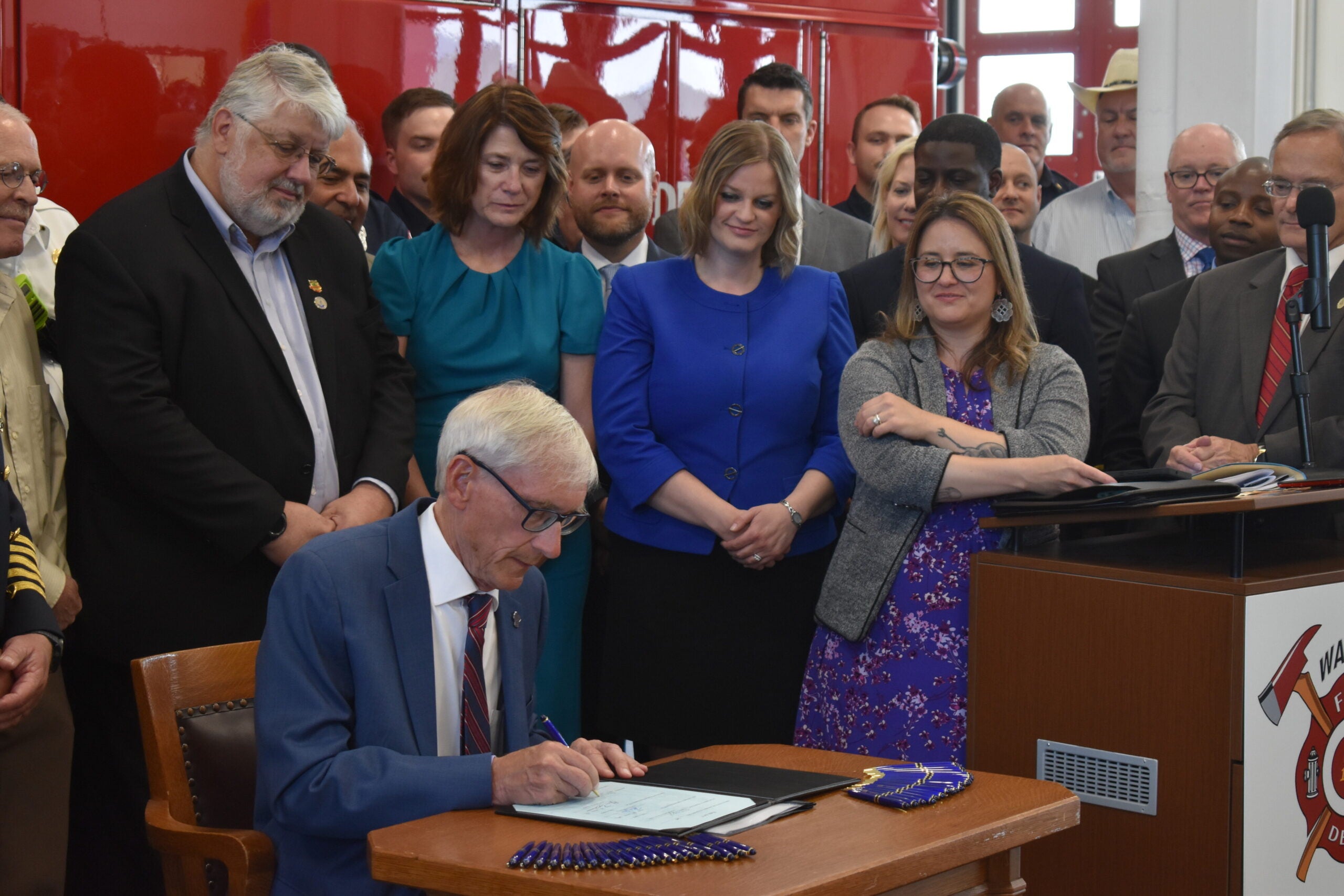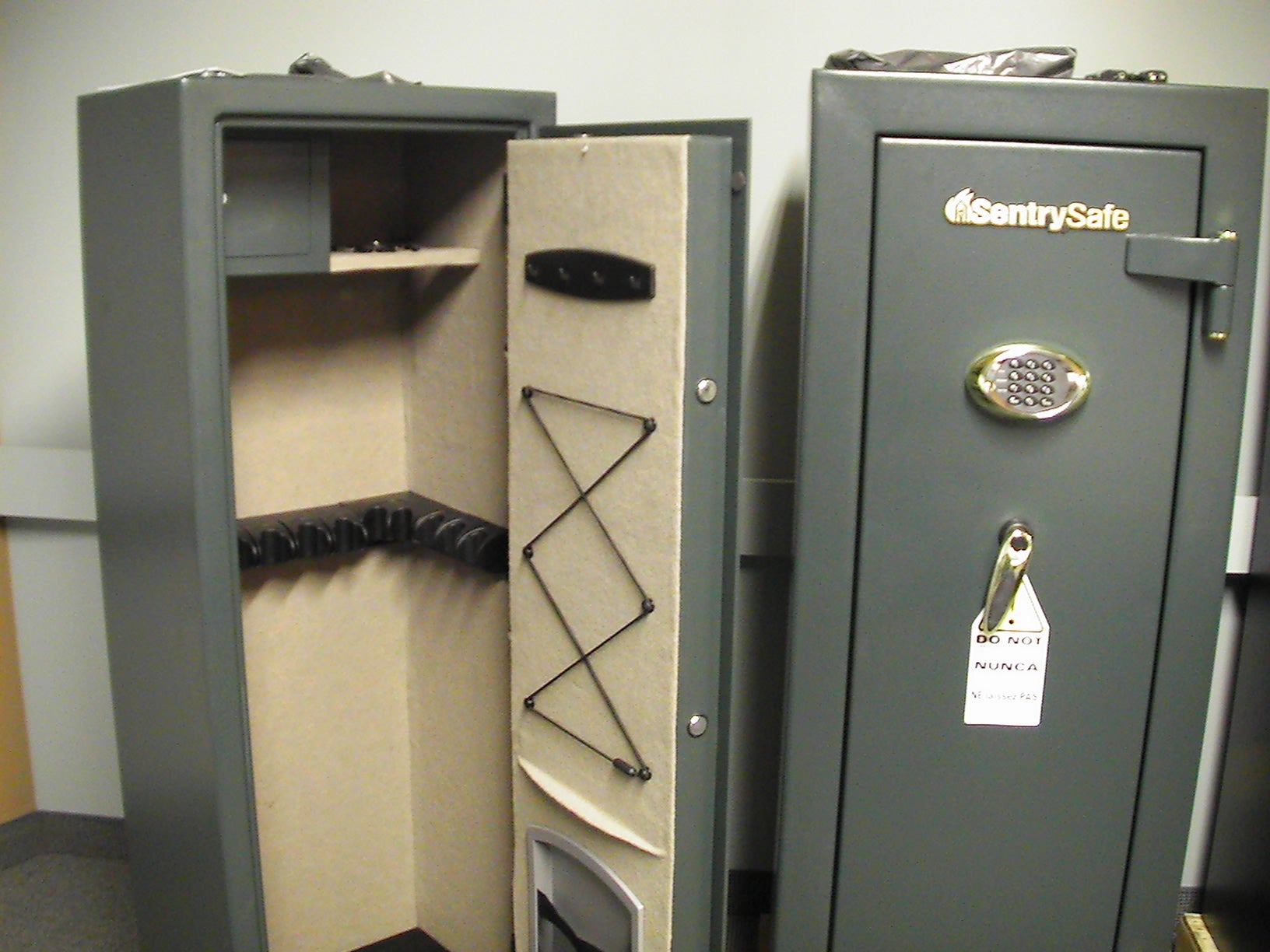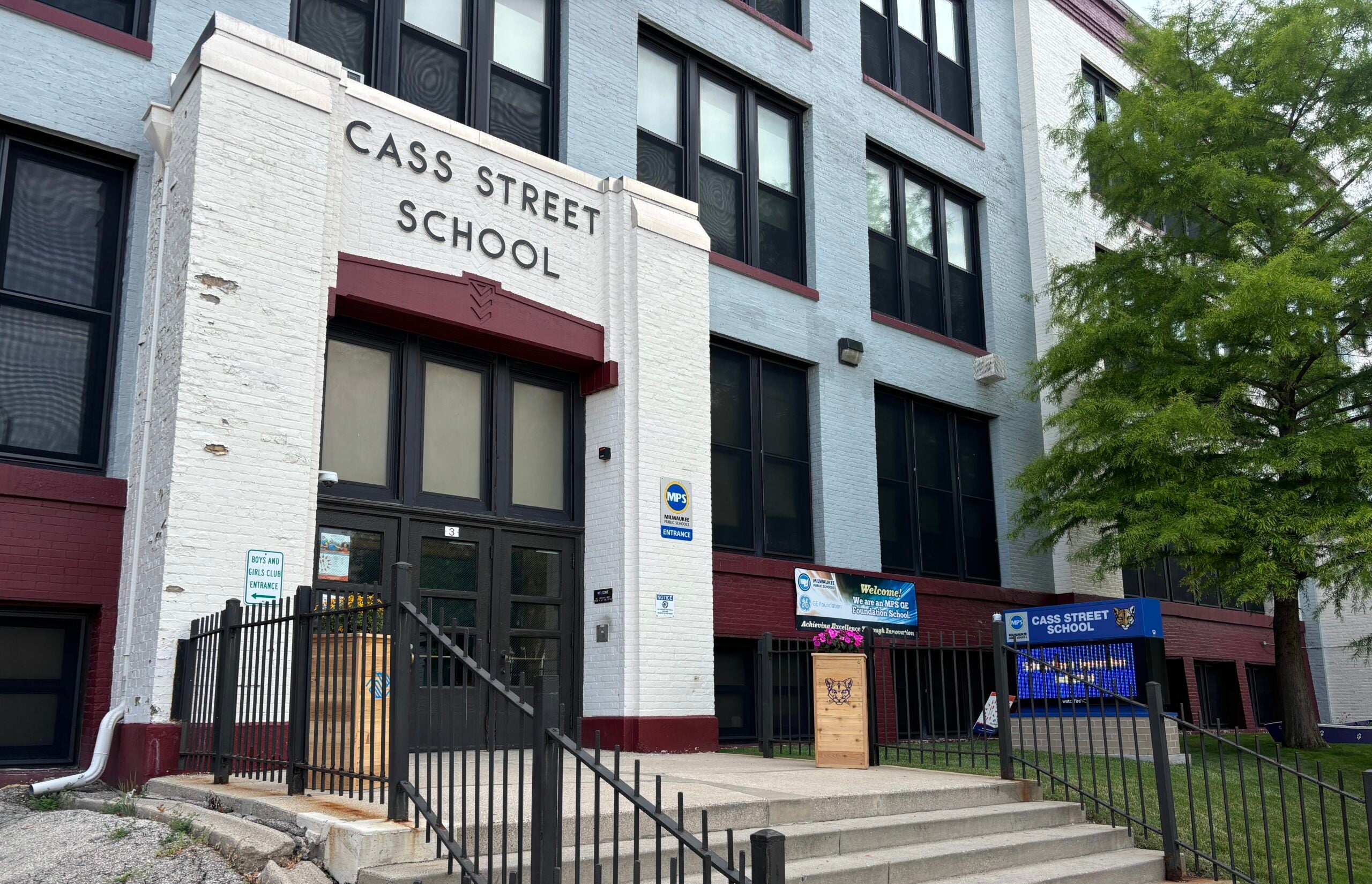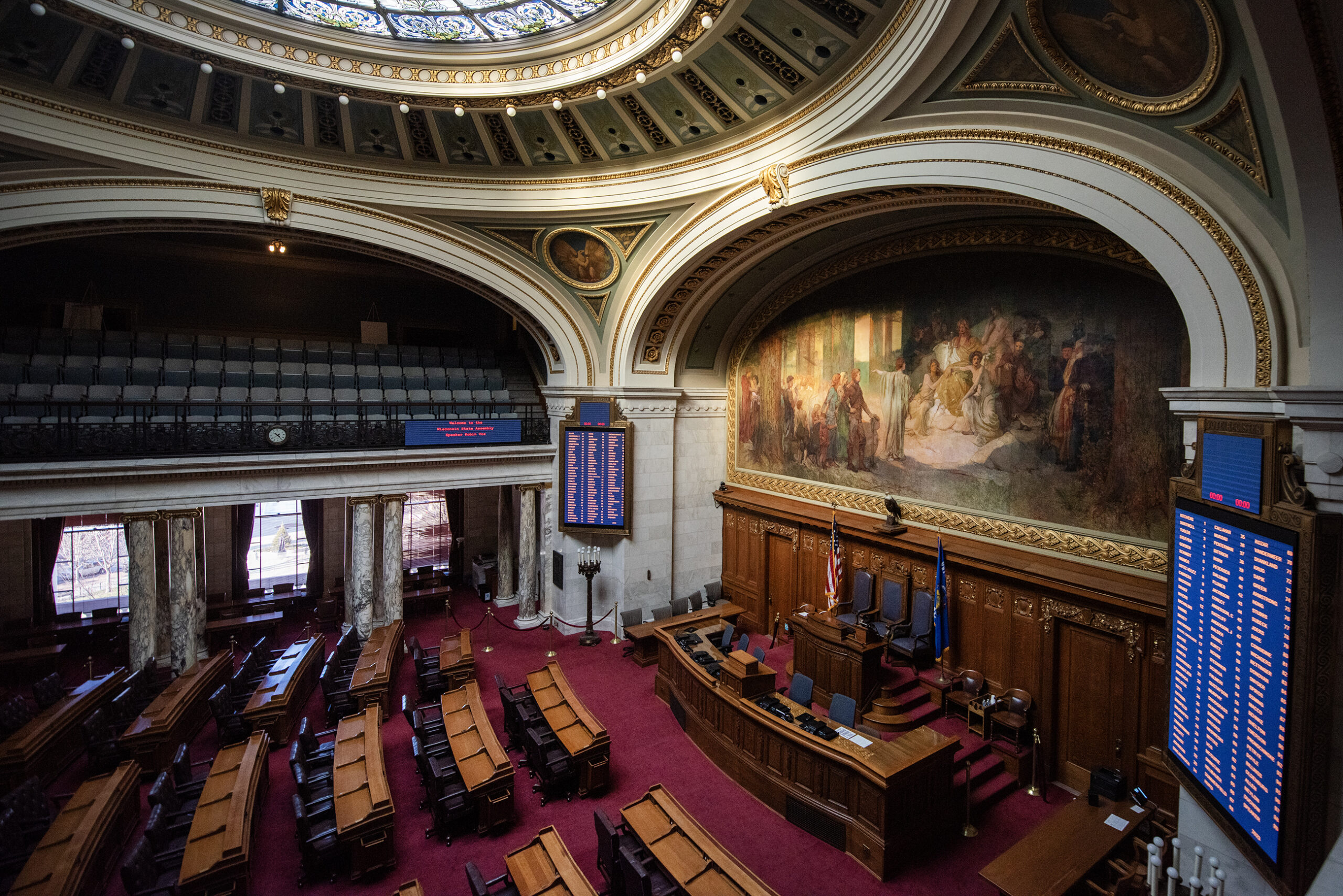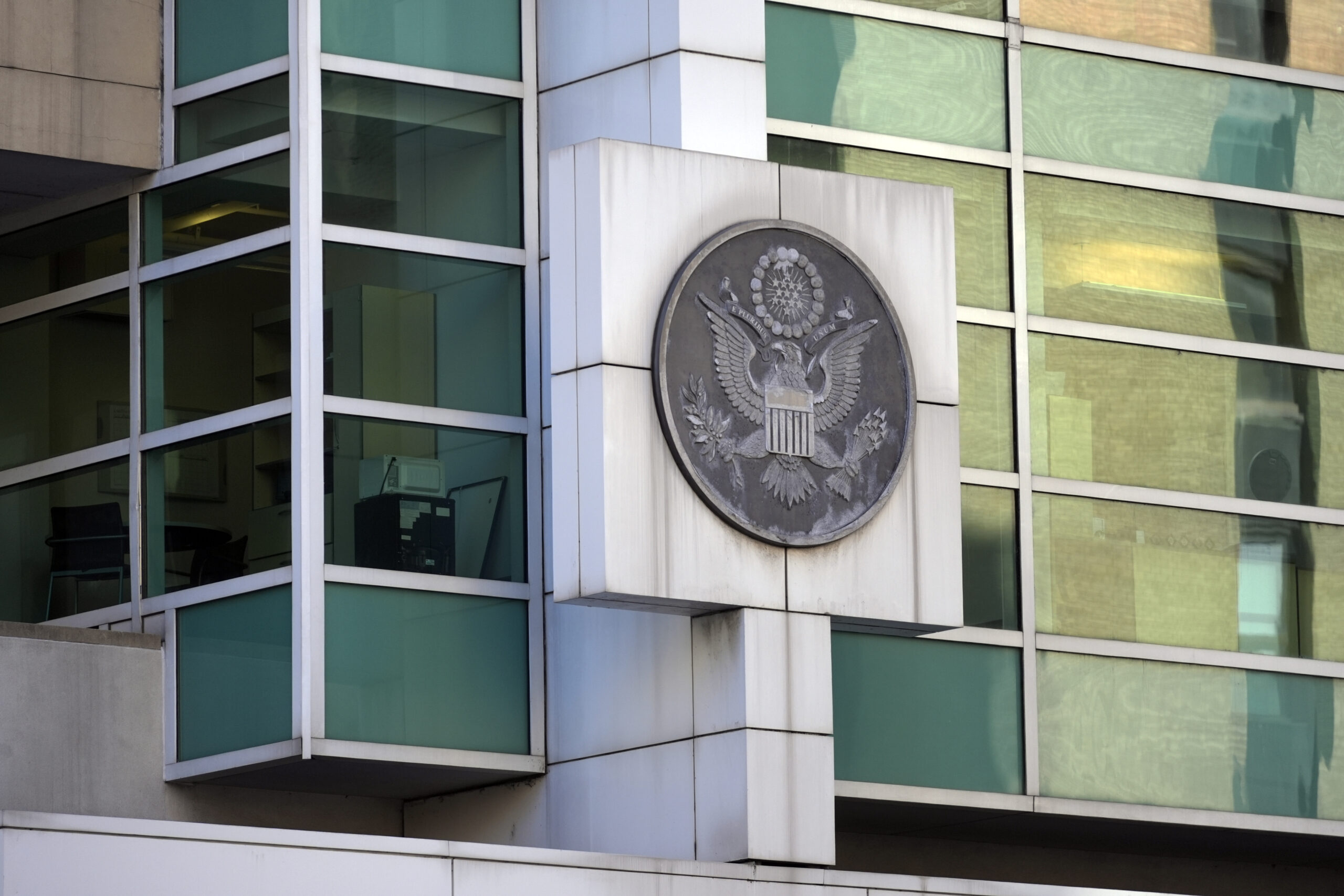Wisconsin will boost state funding for all its cities, counties, villages and towns by at least 20 percent and add $1 billion in funding for public schools under a historic revenue agreement signed into law Tuesday by Gov. Tony Evers.
Evers celebrated the massive overhaul of how the state funds local government at a bill signing event in Wausau, to be followed by similar events in Chippewa Falls and Superior. The agreement between the Democratic governor and the Republican-controlled Legislature is the biggest bipartisan compromise in Wisconsin state government in years.
“I … believed that supporting our local communities is an area where we could find common ground and bipartisan support,” Evers said. “Well, folks, I was right.”
Stay informed on the latest news
Sign up for WPR’s email newsletter.
The bill will provide funding to large and small communities across Wisconsin to fund services including police and emergency responders.
“Today means our local partners might finally be able to make ends meet,” Evers said.
The Wausau event was held at a fire station, where Evers was flanked by central Wisconsin lawmakers from both sides of the aisle and by the mayors of Milwaukee and Wausau. Wausau Mayor Katie Rosenberg said the city has expanded its force of firefighters and paramedics for the first time in some four decades, and the new state revenue will make the expansion sustainable.
“This increase in shared revenue gives the city the flexibility to prioritize our most urgent needs,” Rosenberg said.
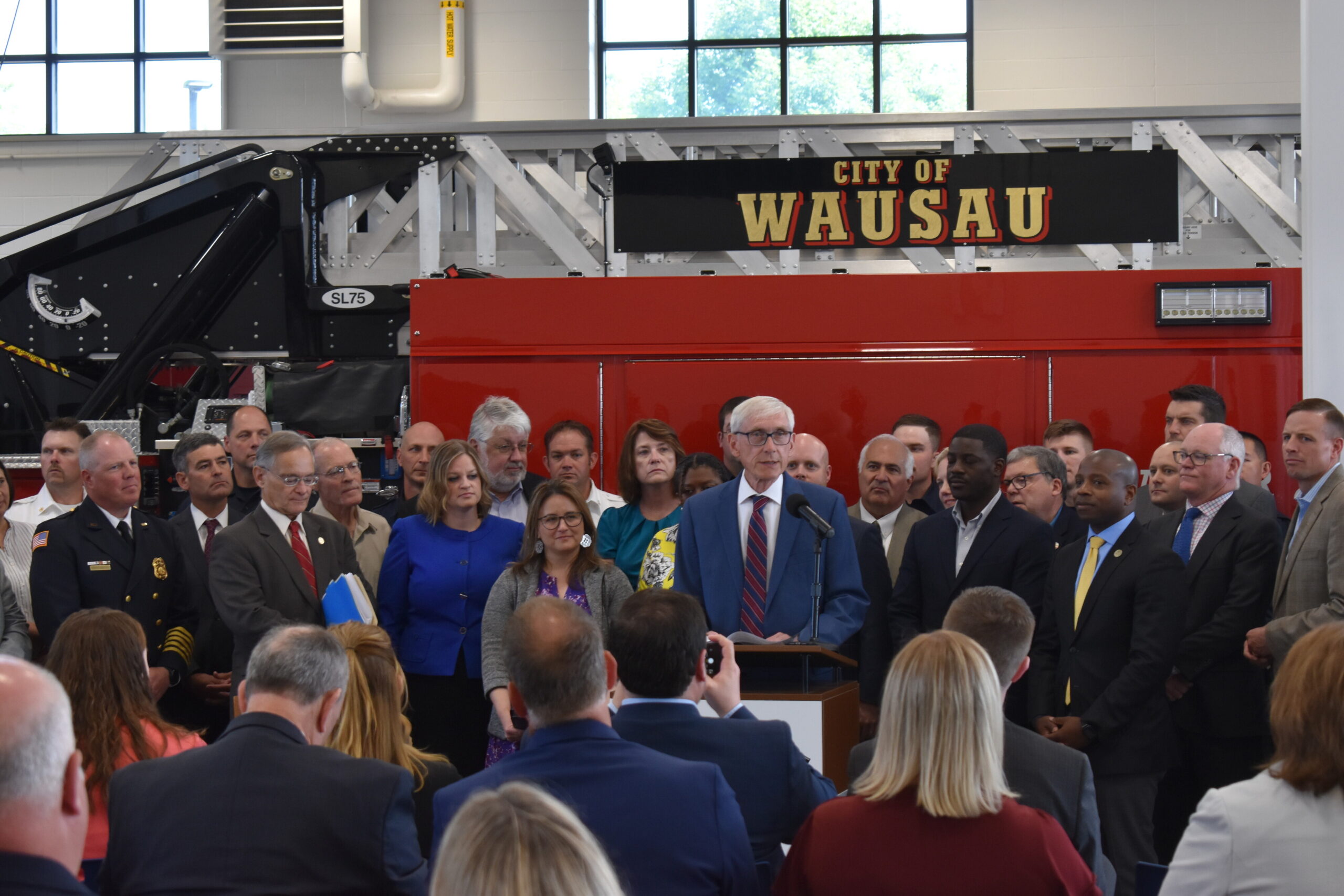
Wisconsin’s towns and rural communities will see especially marked increases in state funds under the new law; some will see state funding more than double. Rep. Katrina Shankland, D-Stevens Point, said the law “helps close the funding gaps” between cities and rural communities.
“With the passage of this shared revenue legislation, our small towns and rural communities across Wisconsin are finally getting a fair shake,” Shankland said.
The law also serves as a lifeline for the state’s largest city. Milwaukee faced fiscal disaster in the absence of an agreement and would have been forced to make deep cuts to all public services including reducing staffing at the police and fire departments. Among the most controversial elements of the new law as it was being negotiated was granting the city the ability to raise local sales taxes with a two-thirds vote by the City Council and Milwauke County Board.
State Sen. LaTonya Johnson, D-Milwaukee, said the bill will make it possible for the city to address longstanding financial challenges.
“This shared revenue package, for us, means absolutely everything,” Johnson said. “It is our city’s opportunity to start over.”
The bill has not been so well-received on Milwaukee’s City Council, where members have blasted provisions specific to the city, such as a requirement that the city return police officers to city schools and a prohibition on spending state revenue on the city’s streetcar, The Hop. It would also remove authority from the city’s civilian police and fire commission.
On Tuesday, Milwaukee City Council President José G. Pérez said in a statement that the Council will vote on setting aside funds for “litigation to fight provisions of the bill that overstep our home rule.” But Perez also said the city “cannot afford to wait” on the provision of the law that would allow it to implement the new sales tax. The council will vote July 11 on whether to move forward with the new tax.
In response to the Council, Republican Assembly Speaker Robin Vos reportedly said Milwaukee should turn its attention to its finances “instead of focusing on frivolous lawsuits.”
Among the key victories for conservatives in negotiations with the governor was the passage of a tandem bill that would be the largest expansion in private school funding in the program’s history. The bill would increase payments for private school choice students by 13 percent in grades K-8 and by 33 percent for high schoolers. Evers agreed to sign that bill in order to secure enough GOP support to pass the larger shared revenue bill. In comments to reporters in Wausau, Evers said every increase in public school funding has been accompanied by increases in private school voucher funding.
“We added a little bit more money in order to get this deal across the finish line,” Evers said. “But the idea that somehow voucher schools and independent charters haven’t been receiving money and all of a sudden they are this time, that’s just not true.”
Wisconsin Public Radio, © Copyright 2025, Board of Regents of the University of Wisconsin System and Wisconsin Educational Communications Board.

